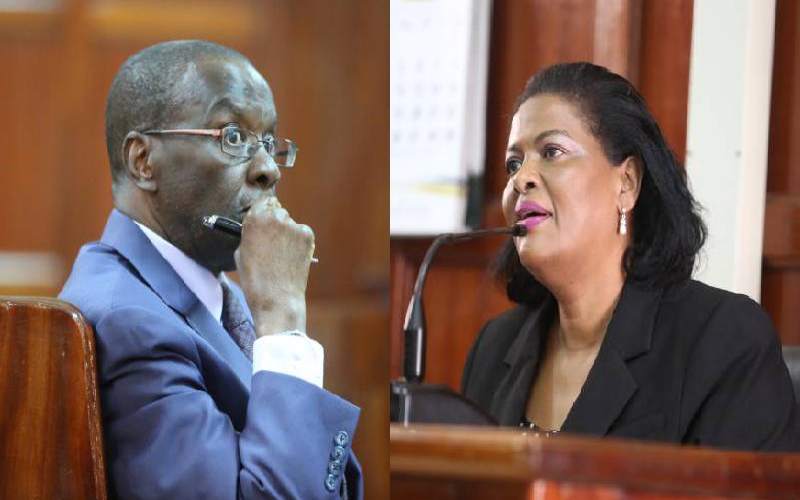×
The Standard e-Paper
Fearless, Trusted News

Supreme Court judge Njoki Ndung’u has denied claims of impropriety in writing minutes of a meeting of top judges that discussed retirement of judicial officers.
In an affidavit, former Chief Justice Willy Mutunga has termed the minutes of October 6, 2015 suspect, saying they are not a true reflection of what was discussed and that they were signed by his deputy Kalpana Rawal, who was involved in the retirement saga.